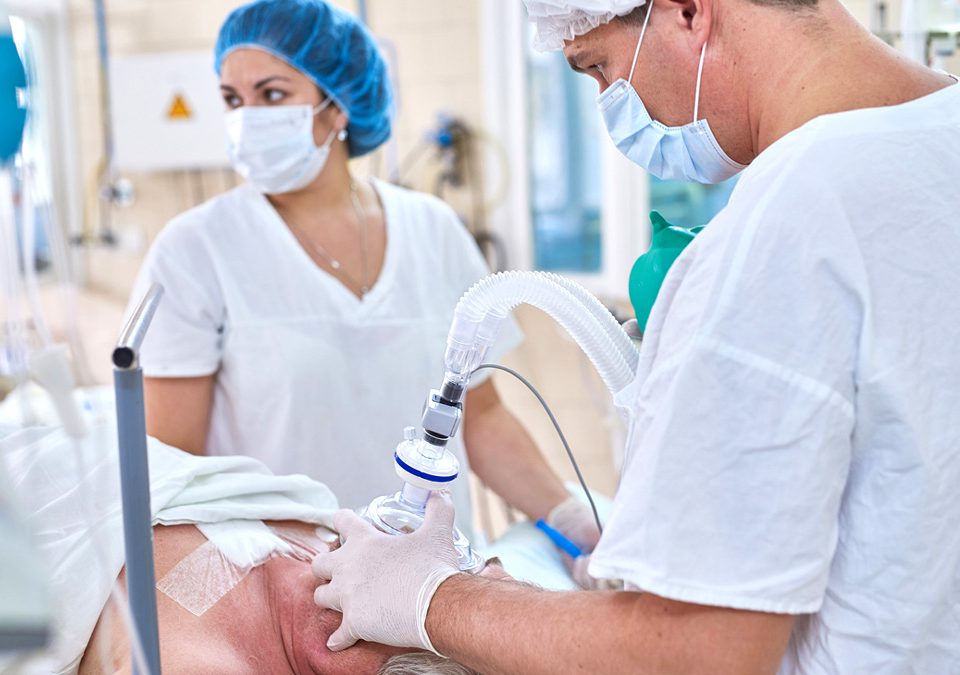
Key Characteristics Prevalent in Successful Medical School Applicants
If you are in the throes of applying to a stream of prospective Caribbean medical schools, you might find yourself wondering how you can set yourself apart from a sea of contenders and leave a lasting impact on the admissions committee. Remember that while successful physicians hail from diverse opinions and backgrounds, they all share a set of character traits: resilience, compassion, a passion for learning, critical thinking, a presence, and strong communication skills. Though each individual expresses his key traits uniquely, these characteristics are rather critical to practicing medicine, and thus are highly sought-after by medical school admission committees. Before you apply to a Caribbean medical school, here are a few traits you should strive to cultivate to ensure a stellar profile:
Compassion
Compassion involves more than mere civility and kindness; it’s when you exude a genuine sympathy for co-workers, colleagues, patients, and self, regardless of personal behavior, creed, class, or race. Personal and professional compassion eventually translates into compassion in the workplace down the road. Patients are often prone to look for understanding, empathy, assurance, and warmth from their physicians when they are down in the dumps, not just their medical expertise. Medical schools are well acquainted with the fact that successful physicians care for the entire patient and aim to select applicants who are well-drilled in the value of compassion, both in their professional lives and medical education.
Compassion embodies benevolence, kindness, concern, and empathy. Prospective students should be able to account for more than “I volunteered at my local hospital,” and rather illuminate on what the experience says about them as a human and as a physician and what they learned from the experience. Students can develop compassion skills in a wide array of ways and should be able to show admission committees their inclination to become a compassionate physician in the long run.
For instance, volunteering activities build a sense of self-worth in students, create meaningful connections with others, and inculcate valuable lessons. “Walking in another’s shoes” is another way to nurture a sense of compassion. Patients may be poles apart from you and may sound and look different than you. It especially requires an inordinate amount of compassion and dedication to the field to deal with difficult patients. This is the thin line that differentiates smart physicians from those who care for the community. Aspiring physicians should seek to donate time to meaningful organizations and volunteer in a medical clinic or a hospital before applying to a Caribbean medical school.
Communication Skills
Do not confuse teamwork skills with interpersonal and communication skills. They dictate your interactions with people on an individual level. Will you be able to exhibit empathy and compassion for those in need? How clearly do you communicate with others? Are you an easy person to get along with? These are a few questions that admissions committees would like you to vouch for!
Your body language, listening skills, and voice inflections relay tons of information, both non-verbally and verbally. The communication of orders, concepts, and ideas are vital in the field of medicine. It’s highly essential that you articulate with the correct language, idiom, and tone. Similarly, nonverbal communication gives you clues about a patient’s receptiveness, engagement, and how well they are going to comply with instructions. You can cultivate effective communication skills through undergraduate organizations, class presentations, and participation in speech courses.
You can also sell the admissions committees on your communication skills in your medical school interviews. Physicians in the admissions committees might have to work with the candidates they select down the road, which is why they prefer to go with individuals who are easy to get along with. Your recommendation letters can also go a long way towards highlighting your skills. Make sure to get someone who knows you well or has worked with you on a personal level to vouch for your interactions with people, your communication skills, and the type of person that you are.
Presence
This is a key trait which lets you speak effectively and confidently with patients and colleagues. Instead of framing responses in your mind, concentrate instead on what the other person is trying to say and pay attention to their words. Be it talking on the phone or in-person, focus all your attention on the other correspondent. This puts wandering off in thought, texting, surfing the Web, or emailing in the middle of dialogue right off the table. Being present nonverbally says a lot about how you are focusing your intellect and attention on the issue at hand and relays that you are there with them.
Critical thinking
Regardless of your specialty down the road, how you pull inferences and deductive reasoning based on experience and knowledge and analyze copious amounts of data to put together a working conclusion, is vital to your profession. While they may be administered the same treatment, no two patients are like, which means that each needs to be evaluated individually. Failure to do so can lead to fatal and life-threatening slips.
Undergraduate courses in both sciences and humanities foster critical thinking skills. Your appropriate application of knowledge and proactive critical thinking translate into a great diagnostician or clinician in the future, helping the committee chafe out “brilliant” from “smart.”
Resilience
When it seems like everything is going downhill and all hope seems to dwindle, this is one trait that will see you through. As if life wasn’t challenging enough, a career in medicine is strife with its demons of ups and downs. Missed meals, lack of sleep, yelling attendants, and dying patients can indeed put a damper on your spirits. To achieve success in your life and career, look towards healthy coping mechanisms which can help you in performing optimally, even in the face of adversity.
This includes daily exercise, such as practicing martial arts, swimming a few laps, punching a heavy bag, or taking a long run, to unwind. Or perhaps going for a long drive, meditating, practicing religion, journaling, or writing poetry is your way of dealing with the fluctuations of life. Juggling extracurricular activities, intramural athletics, and volunteer work with your classes, and achieving a harmoniums balance can allow you to take a deep breath and appreciate the beauty in life and hone in on your resilience skills. In a nutshell, developing character, in addition to learning technical and scientific knowledge, results in a balanced and well-informed physician.
Dedication towards Learning
Gaining admission in a medical school isn’t all about how smart you are. Your IQ isn’t going to benefit anyone if you fail to retain all the vital information that a doctor needs to possess in their arsenal. Your learning isn’t limited to your time at the medical school; doctors have to be life-long learners. You will be entailed to interpret scientific and medical research and information; not just get comfortable with finding the latest evidence for X treatment, but also rooting out the validity of that evidence. You will be required to stay abreast of the rapid developments in medicine by following the latest clinical guidelines and reading up on the most up-to-the-date academic medical journals.
Your MCAT scores and GPA can demonstrate to your admissions committee how well you synthesize information, study, and apply it on a daily basis. Even geniuses can fail to achieve quality grades if they don’t apply themselves. Being smart doesn’t cut the bill alone; you should be able to acquire new information throughout your career in medicine and optimize your patient care by supplementing that information with your intellect and critical thinking and analytic skills.
In addition, it goes in your favor if you are involved in some academic research. Research experience implies that you attentively read up on scientific/academic papers, and reflect on your propensity to contribute to the field in the long run. This also highlights your dedication and passion for the field. Since you will be dealing with university-affiliated physicians from the admissions committees, the more they can relate to you, the better your chances are of leaving a great impression.



